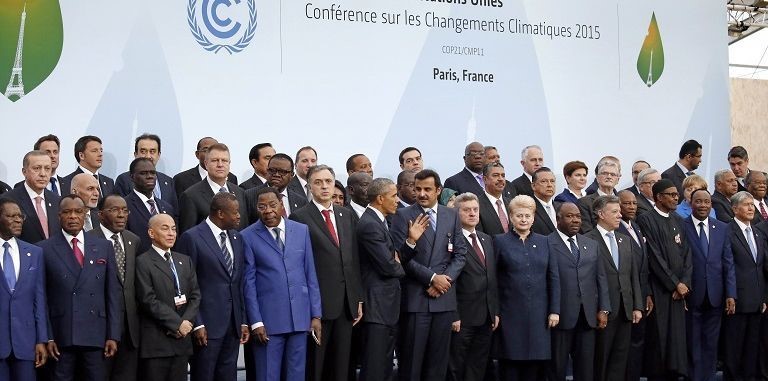Eighteen countries (Austria, Brazil, Cameroon, Canada, Finland, France, Germany, Indonesia, Japan, Mexico, Morocco, Norway, Senegal, Singapore, Sweden, Tunisia, Ukraine, United Arab Emirates, United States of America) and over 60 organisations on Thursday at the UN climate conference (COP21) in Paris launched an unprecedented Global Alliance for Buildings and Construction to speed up and scale up the sector’s huge potential to reduce its emissions and literally build greater climate resilience into future cities and infrastructure.

The Alliance, with membership from countries to cities, NGOs, public and private organisations, networks of professionals, of cities, of companies as well as financing institutions, announced the initiative at the Lima to Paris Action Agenda Focus on Buildings, in Paris.
Among other members, the International Union of Architects (UIA) now represents, through national architecture organisations, close to 1,3 million architects worldwide; the World Green Building Council (WGBC) represents 27000 companies involved in green buildings business worldwide; the Royal Institution of Chartered Surveyors (RICS) represents 180,000 building surveyors globally; the European Construction Industry Federation (FIEC) represents the construction sector employers through 33 national federations in 29 countries.
The buildings and construction sector is responsible for 30% of global CO2 emissions but it also has the potential to avoid about 3.2GtCO2 by 2050 through mainstreaming today’s available state-of-the-art policies and technologies. Reducing energy demand in the building sector is one of the most cost-effective strategies for achieving significant greenhouse gas reductions.
Real estate represents about 50% of global wealth. Creating this transformation requires investing around an additional US$220 billion by 2020 – an almost 50% increase on 2014 investment in energy efficient buildings – but less than 4% of the current total global annual investment in construction activity ($8.5 trillion/yr). Returns on this investment could be as high as 124% if investments in ambitious policy and technology actions are being made now.
As at today, 91 countries have included elements of commitments, national programs, or projects and plans relating to buildings in their Intended Nationally Determined Contributions (INDCs), the declarations by countries of what they are prepared to commit to.
With support and greater awareness, many more may realize the potential for the building sector to contribute to realizing national targets. Yet, the building sector is very local and needs to align many different actors, which is a primary objective of the new alliance.
As cities keep on growing until more than 70% of the global population will call urban areas home, it becomes crucial for the sector to reduce its emissions and literally build in greater resilience against climate change.
